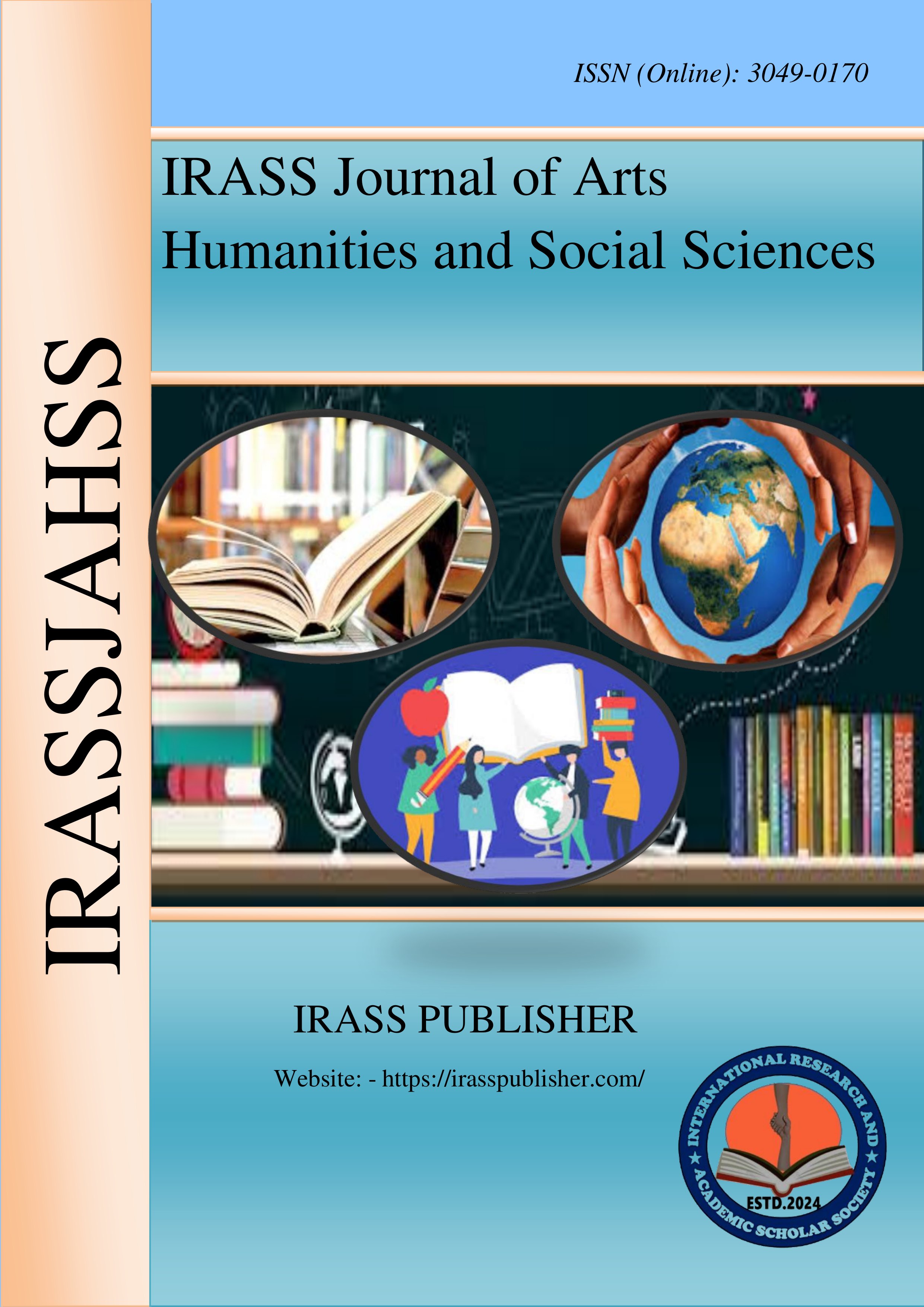EXPLORING TEACHERS' PERSPECTIVES ON CULTURALLY RESPONSIVE LEADERSHIP PRACTICES AMONG SCHOOL HEADS
Sr No:
Page No:
98-111
Language:
English
Authors:
Hamedi B. Kumaka, EdD* , Harris M. Sinolinding, PhD
Received:
2025-04-22
Accepted:
2025-05-08
Published Date:
2025-05-12
GoogleScholar:
Click here
Abstract:
This study aimed to examine the impact of culturally responsive leadership on
teacher retention intentions and student inclusivity in the Bangsamoro Autonomous Region in
Muslim Mindanao (BARMM), focusing specifically on the division of the Special Geographic
Area (SGA). A mixed-method research design with an exploratory sequential approach was
employed, consisting of qualitative interviews with 20 senior teachers and a subsequent
quantitative survey of 321 teachers. The study identified key themes through interviews, which
were used to develop a structured questionnaire. Data analysis was conducted using thematic
coding, correlation, and regression techniques to assess the relationship between leadership
practices, teacher retention, and student inclusivity.
In the qualitative phase, teachers identified three central themes related to culturally
responsive leadership: inclusivity and cultural respect, equitable and supportive environments,
and empowered cultural collaboration and communication. These practices were seen to foster a
supportive school climate, promote cultural expression, and enhance mutual respect. The
quantitative phase confirmed that teachers perceived leadership practices, particularly cultural
collaboration and equity, as significantly impacting teacher retention and student inclusivity. The
study found a strong correlation between these leadership practices and positive outcomes in
teacher job satisfaction and student participation, with cultural collaboration being a strong
predictor.
The study's conclusions highlighted the importance of culturally responsive leadership in
fostering a sense of belonging, trust, and collaboration within the school community. It was
determined that sustaining these practices is essential for improving both teacher retention and
student inclusivity. A comprehensive policy brief was developed and verified from stakeholders
to support the continued institutionalization of inclusive leadership practices, including the
implementation of professional development programs, the embedding of inclusivity in school
structures, and the provision of resources to support diversity.
Keywords:
Culturally Responsive Leadership (CRL); Cultural Competence; Cultural Responsiveness; Teacher Retention Intentions; Student Inclusivity; Inclusive Educational Policies; Cultural Representation in Curriculum; Equity in Resources and Opportunities; Equitable and Supportive Environment; Inclusivity and Cultural Respect; Professional Development Opportunities; Workplace Climate and Support; Cultural Collaboration and Communication; Job Satisfaction; Student Participation; BARMM (Bangsamoro Autonomous Region in Muslim Mindanao); Special Geographic Area Division; Non-Western Educational Contexts; Policy Framework; Reflective Practices.
Journal: IRASS Journal of Arts, Humanities and Social Sciences
ISSN(Online): 3049-0170
Publisher: IRASS Publisher
Frequency:
Monthly
Language:
English

